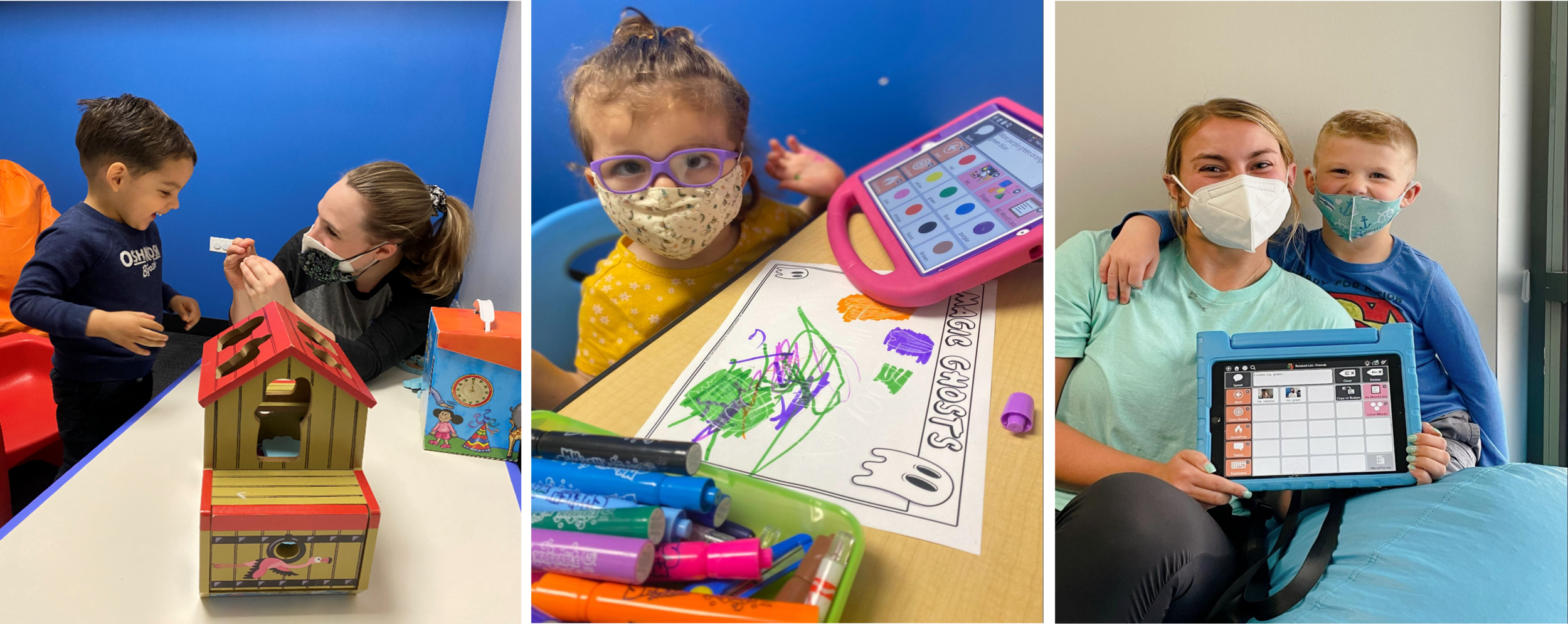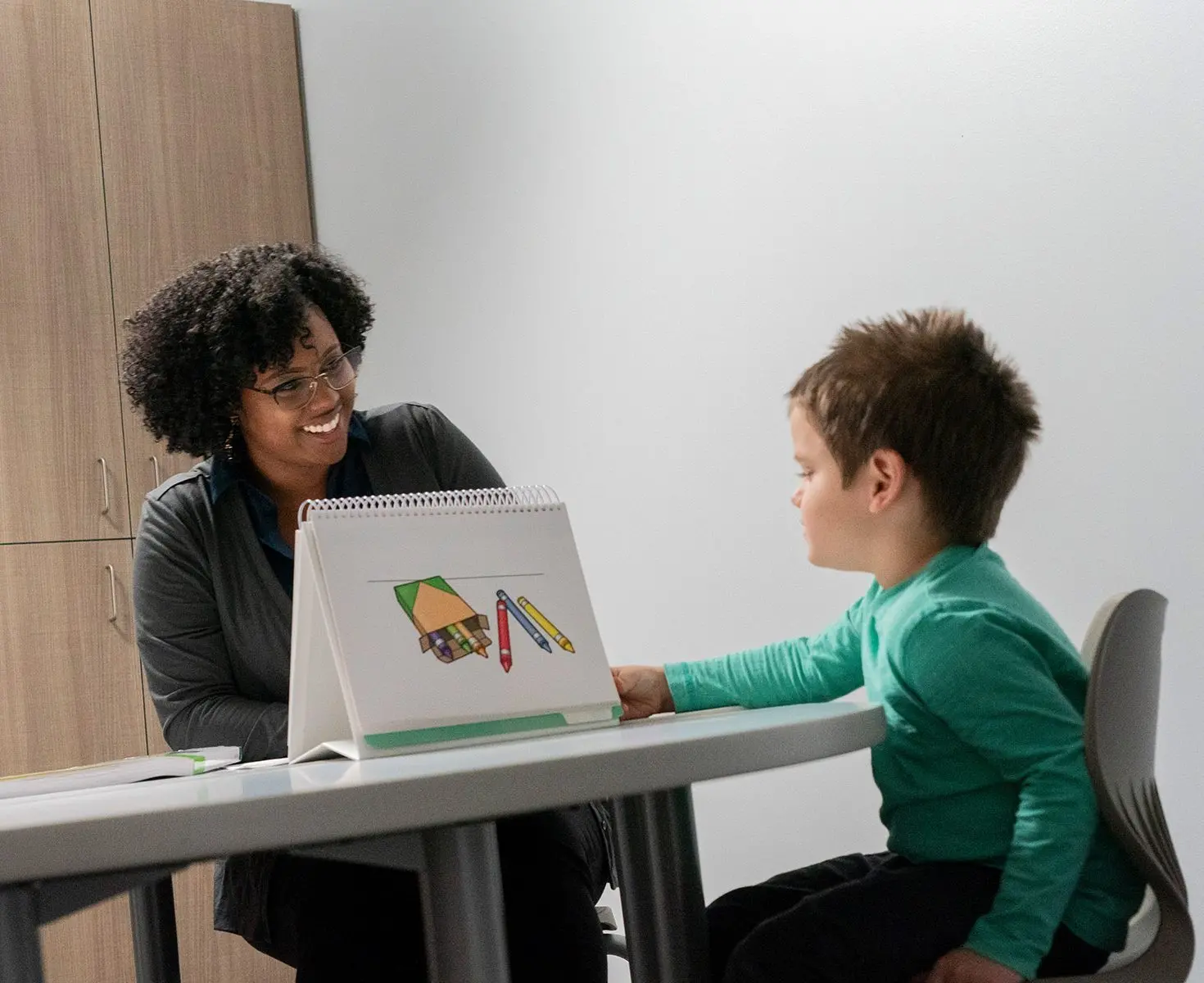The Role of a Speech Pathologist in Managing Speech Impairments
The Role of a Speech Pathologist in Managing Speech Impairments
Blog Article
Just How a Speech Pathologist Can Aid Improve Interaction Skills
Effective communication is a cornerstone of personal and professional success, yet many individuals encounter challenges that hinder their ability to express themselves clearly. A speech pathologist is equipped to address these barriers via targeted analysis and treatment approaches customized to every person's needs. By employing evidence-based healing methods, they not just function to boost speech and language problems however also enhance general communicative proficiency. Comprehending the diverse role of a speech pathologist reveals just how their expertise can change lives, welcoming a better examination of the specific methods and end results connected with their method.
Comprehending Interaction Conditions
Comprehending interaction conditions is vital for recognizing exactly how they impact people' ability to share themselves and engage with others. Interaction disorders include a variety of troubles that affect speech, language, and social communication, often impeding reliable communication. These problems can arise from different aspects, including neurological conditions, developing delays, physical disabilities, or emotional issues.
Speech conditions might manifest as problems in expression, fluency, or voice production, impacting exactly how words are obvious or spoken. Language conditions, on the various other hand, entail obstacles in understanding or using language, which can hinder both non-verbal and spoken interaction. Social interaction disorders are defined by problems in the practical facets of interaction, such as taking turns in conversation or understanding social cues.
The consequences of interaction conditions are extensive, influencing not just the person's capacity to share feelings and thoughts but also their social relationships, educational opportunities, and general high quality of life. Understanding of these conditions can promote empathy and support, motivating efficient approaches for interaction and interaction. Comprehending the complexities of communication conditions is an essential step towards advertising inclusivity and addressing the needs of those affected.
Role of a Speech Pathologist
Speech pathologists frequently play a vital duty in treating and diagnosing communication conditions, utilizing a variety of evidence-based techniques customized per individual's needs. These professionals collaborate with individuals throughout the life expectancy, from kids with speech delays to grownups recuperating from strokes or distressing mind injuries. Their expertise incorporates a selection of communication issues, consisting of articulation, language, fluency, and voice conditions.
In therapeutic setups, speech pathologists utilize organized interventions designed to boost communication abilities. They may apply methods such as speech exercises, language games, and social interaction training to help with renovations in receptive and meaningful language abilities. Speech Pathologist. In addition, they educate clients and their households about efficient communication methods and flexible methods to browse everyday interactions
Beyond direct treatment, speech pathologists team up with other medical care caretakers, specialists, and educators to make sure a comprehensive technique to therapy. They support for clients by offering sources and assistance, enabling people to attain their communication goals and improve their general lifestyle. As specialists in the field, speech pathologists are vital in cultivating effective communication, advertising self-reliance, and boosting social engagement for those with interaction challenges.
Assessment and Diagnosis Process
The analysis and medical diagnosis procedure performed by speech pathologists typically involves an extensive assessment to determine communication conditions properly. This procedure starts with a thorough medical history, where the medical professional collects significant details concerning the individual's medical, educational, and developing click site history. Recognizing the context of the person's communication difficulties is important for an accurate diagnosis.
Following the case history, speech pathologists make use of casual analyses and standard examinations to examine different aspects of interaction, consisting of speech noise production, language understanding, meaningful language, and social communication skills. These assessments are customized to the person's age and particular concerns, giving useful data for evaluation.
Monitoring is likewise a critical component of the assessment procedure, as it permits the medical professional to see direct exactly how the specific interacts in all-natural setups. Additionally, meetings with relative and instructors can offer understanding into the person's communication obstacles across various environments.
As soon as the evaluation is complete, the speech pathologist manufactures the searchings for to identify a medical diagnosis and recommend ideal interventions. This comprehensive analysis procedure makes sure that individuals obtain targeted support customized to their distinct communication demands, laying the foundation for efficient healing techniques.
Healing Techniques and Techniques
Countless therapeutic methods and methods are utilized by speech pathologists to address a range of interaction problems effectively. One extensively made use of method is articulation treatment, which concentrates on fixing speech seems with rep and visual hints. This strategy is particularly helpful for people with speech sound problems.
One more effective approach is language treatment, which enhances both receptive and meaningful language skills. This may entail interactive activities that advertise vocabulary advancement, sentence framework understanding, and conversational abilities. In addition, speech pathologists typically utilize social skills educating to boost practical language capacities, enabling individuals to navigate social communications much more efficiently.
Fluency shaping and stuttering alteration strategies are especially made to aid those experiencing fluency problems. These techniques help clients develop smoother speech patterns and manage the psychological and physical elements of stuttering.
Additionally, alternate and augmentative interaction (AAC) systems are utilized for individuals with severe interaction disabilities. These systems, which can include gestures, icons, or digital gadgets, offer vital support for reliable interaction.
Benefits of Speech Therapy

Furthermore, speech therapy can aid in creating essential listening and understanding skills, fostering better communication in discussions. Individuals with cognitive-communication disorders can additionally profit, as treatment concentrates on enhancing memory and problem-solving capacities, crucial for reliable communication.
Another critical facet is the emotional support click resources given throughout treatment sessions. Speech pathologists create a secure atmosphere, encouraging people to get rid of anxiety and aggravation pertaining to their interaction issues. This assistance can result in boosted self-confidence and overall psychological well-being.
In addition, early treatment with speech treatment can avoid more difficulties, making sure that individuals reach their complete communicative potential. Generally, the benefits of speech treatment extend beyond plain speech enhancement, favorably impacting various measurements of life for those influenced by communication troubles.
Conclusion
In recap, speech pathologists play a critical role in resolving communication conditions via assessment, diagnosis, and customized therapeutic interventions. By using evidence-based techniques, these experts boost people' speech and language capabilities, promoting boosted clarity, fluency, and social interaction skills. The advantages of very early treatment underscore the value of looking for aid from speech pathologists, as their know-how can significantly improve communicative capacity, inevitably leading to greater success in both personal and expert rounds.

Speech pathologists regularly play a vital function in treating and identifying interaction disorders, utilizing a variety of evidence-based strategies tailored to each individual's requirements. As professionals in the area, speech pathologists are important in promoting reliable interaction, promoting independence, and improving social engagement for those with interaction challenges.

Report this page